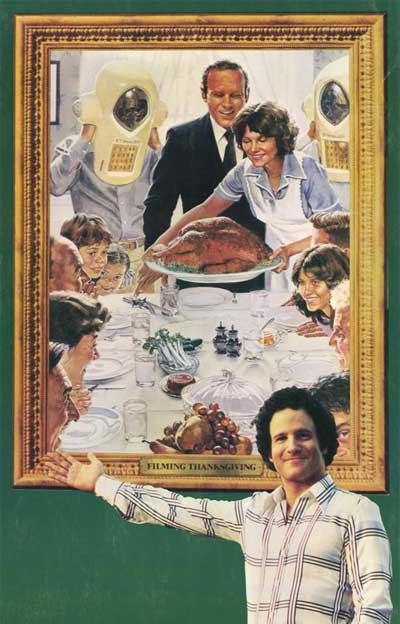
Facsimile Magazine, Published by Haoyan of America. Volume Three, Number Three, 2009. ISSN 1937-2116.
Facsimile March 2009 ~ Life Goes On
Table of Contents

Facsimile Magazine, Published by Haoyan of America. Volume Three, Number Three, 2009. ISSN 1937-2116.
Table of Contents
From Time Magazine, November 17, 1947

Pyotr Demianovich Ouspensky
In The Strange Life of Ivan Osokin, a lucid little novel, the hero is given a chance to find out. The story opens at the Kursk station in Moscow on a bright April day in 1902. Osokin, a young man of 26, is seeing Zinaida and her mother off to the Crimea. Zinaida is piqued with Ivan because he will not go with her, but he is too poor to go and too stiff to tell her the reason. The train leaves; Ivan is left alone; he feels for a moment as if the event had happened before. In the next two months he gets three letters from Zinaida; then she stops writing. Soon he hears that she is going to be married.
Ivan goes to a magician, tells him biterly of all the chances he has thrown away in his life. If he had only known beforehand the outcome of his actions, he says, he would not be such a failure. The magician laughs and tells him that nothing would be changed. Then, to Ivan's amazement, he offers to prove it by sending him back twelve years. He may relive his life, and may even remember at every stage—if he wants to—what the consequences will be.
Ivan wakes up in the dormitory at school, where he proceeds to misbehave and get expelled, just as he did before. He hurts his mother, just as he did before. What had been his past is now his future; he knows it but he cannot avoid it. He gets into the same scrapes, has the same adventures with women. By the time he again meets Zinaida he has forgotten that he ever met her. The story repeats itself down to the last detail—until, once again, he finds himself visiting the magician. But when he reaches the point of asking the magician to send him back, he suddenly remembers everything.
"But this is simply turning round on a wheel!" says Osokin. "It is a trap!"
The old man smiles.
"My dear friend," he says, "this trap is called life. ... You must realize that you yourself can change nothing and that you must seek help. ... And to live with this realization means to sacrifice something big for it. ... A man can be given only what he can use; and he can use only that for which he has sacrificed something. ... This is the law of human nature."
The view of life repeating itself on an endless "wheel" is a fundamental of Hindu belief. Westerners are apt to find it a hypothesis out of all proportion to the evidence: the occasional human sensation that "I have been here before." A more common and much stronger sensation is that of free will, which the "wheel" denies. In Osokin's tale, the magician's demands resemble the Christian requisites for salvation.
Peter Demianovich Ouspensky died last month in England, at 69, in the private obscurity wherein he had always preferred darkly to shine. His London solicitor believed that Ouspensky was "the greatest man alive." Sentiments like that of the solicitor were once held by various impressionable readers of A New Model of the Universe and Ouspensky's earlier Tertium Organum, a massive work of esoteric philosophy that Ouspensky wrote in Russia before World War I and first published in English in the U.S. in 1920. Moscow-born Ouspensky was at that time living in Constantinople. The late Viscountess Rothermere, then in Washington, read Tertium Organum, got "passionately" interested in it, cabled-Ouspensky an offer to sponsor him in England.
For a few years in the '20s, Ouspensky held hushed little meetings in London and vied with the more dazzling George Ivanovich Gurdjieff as a spellbinder to wandering intelligentsia. He had himself been a Gurdjieffean for a time, but the two mystics parted when Ouspensky began to think he should be more than just a disciple. Not as hypnotic personally as Gurdjieff, Ouspensky never made as great a splash in the U.S., which he visited as a lecturer in 1942. But his first and last novel will remain readable longer than Gurdjieff's extant pronouncements, for Ouspensky knew how to write.
From tvtropes.org

Real Life by Albert Brooks.
That dull, gray place you visit when you're not slaying vampires, traversing time and space, learning wizardry, stopping terrorists, saving the world, surviving the Korean War, riffing at awful movies, piloting giant robots, going boldly where no man has gone before, fighting monsters all over the country and driving a reallly cool muscle car, keeping God under control, stomping on evil, brown mushrooms or some other horrendously addictive activity.
Supposedly contains the Daystar, that terrible orb that burns you and gives you cancer after accidentally stepping outside after reading too many tropes.
Sometimes considered an inaccurate reflection of the true world of fiction. Recommended as part of a balanced diet. Beware of characters who end up here.
Also the name of a webcomic whose actual connection to real life varies. "Varies" having the meaning here of including Time Travel and Humongous Mecha.
Not to be confused with Truth In Television.
Stand at the window here. Was ever such a dreary, dismal, unprofitable world? See how the yellow fog swirls down the street and drifts across the dun-coloured houses. What could be more hopelessly prosaic and material? What is the use of having powers, Doctor, when one has no field upon which to exert them?
- Sherlock Holmes from The Sign of the Four
By Alex Blumberg and NPR's Adam Davidson
Excerpted from This American Life episode 375: Bad Bank

Malcolm McDowell as Caligula, 1979.
David Beim: The year 37, in Ancient Rome, there was a bank run. They had a very sophisticated banking system, and there was run on those banks in AD 37. Some number of ships didn’t come in with their cargo, or something happened, and the Emperor went out of Rome, and how did he deal with it? He did just what Ben Bernanke would do. He came galloping back into Rome with bags full of coin and distributed them to the banks. It’s been happening as long as there have been banks. Governments must protect banks.
Adam Davidson: So if the government won’t let banks fail, and also won’t take them over, that means that Citibank, Bank of America, throw in JP Morgan Chase and three or four others--they have us over a barrel. We can't let them just fail. And it's going to cost us one way or another to keep them alive. And this sucks. I feel that, you feel that, Congress definitely feels that.
Alex Blumberg: Or at least their constituents are communicating those feelings to Congress. And this frustration leads to a lot of lashing out about almost exactly the wrong thing. Here's Massachusetts congressman Mike Capuano yelling at the banks.
Mike Capuano: Start loaning the money that we gave you! Get it on the street!
Alex Blumberg: This might be a reasonable expectation for healthy banks, but for insolvent banks it can be a disaster, and the reason all goes back to our balance sheet. When a bank is insolvent, it doesn't have enough capital to cover its losses. In that situation, banks would actually be doing the RIGHT thing by keeping the bailout money that we're giving them. It needs to hold onto their capital, that's how they fix their balance sheets. If they loaned the money away, they'd be returning to the situation we're trying to rescue them from. In other words, saving the banking system, means that the banks that are worst off, should loan less, not more. But beyond the balance sheet, David Beim has a much more profound reason why banks shouldn't lend. He shows me something on his computer.
David Beim: Ok, so here is a picture, a graphic, and a chart that goes back to 1916 and up to...
Alex Blumberg: We're in his office, and we're looking at a graph, and it's, basically, a measure of how much debt we the citizens of America, are in. How much we all owe--on our mortgages and credit cards and auto loans--compared to the economy as a whole, the GDP (Gross Domestic Product). And for most of history, the amount we owed was a lot smaller than the economy as a whole. This ratio, household debt to GDP bounces along around between 30 and 50 percent, for most of the '30s and '40s 50s, 60s, and 70s, right into the 80s. Then it breaks through 50% in the 80s, starts heading up in the 1990s. And then...
David Beim: From 2000 to 2008, it just goes, almost a hockey stick, it goes dramatically upward...
Alex Blumberg: Like a rocket.
David Beim: It hits 100% of GDP. That is to say, currently, consumers own 13 trillion dollars when the GDP is $13 trillion. That's a $100 trillion owed by individuals. That is a ton.
Alex Blumberg: I'm going to ask a leading question, because I'm looking at a graph right here. Tell me professor, has there ever been a time where we owed that much before?
David Beim: I'm glad you asked me that. And guess what? The earlier peak, which is way over on the left part of the chart, where debt is 100% of GDP, was in 1929. This is a map of twin peaks. One in 1929 and one in 2007.
Alex Blumberg: Does that chart scare you?
David Beim: Yes. That chart is the most striking piece of evidence that I have that what is happening to us is something that goes way beyond toxic assets in banks, it's something that had little to do with mortgage securitization, or ethics on Wall Street, or anything else. It says the problem is us. The problem is not the banks, greedy though they may be, overpaid though they may be. The problem is us. We have over-borrowed. We have been living very high on the hog. We are, our standard of living has been rising dramatically in the last 25 years, and we have been borrowing much of the money needed to make that prosperity happen.
Alex Blumberg: And so, when you see Congress, sort of saying we need more, we need to make sure there are strings attached to this money, to make sure the banks are lending it out, that doesn't make any sense.
David Beim: It makes, not only no sense, it makes reverse sense. It's nonsense. Because what the banks have done is already lend too much. The name of this problem is too much debt. We have over-borrowed, and we have done that over many, many decades. And now it's reached just an unbearable peak where people on average cannot repay the debts they've got. In the face of that, it is no solution to try to lend more.
Listen to the full episode, Bad Bank and other shows on the financial crisis: Giant Pool of Money and Another Frightening Show About the Economy. And you can get daily updates about the financial crisis on Alex and Adam's Planet Money podcast and blog.
By Jesus Raptor

I want to put a dim spotlight on one coolhunting topic that I thought about recently. Not too bright though, perhaps because this is either insane or everyone has noticed already. These are the times we live in, yeah? I'm watching my interactions with you through an iphone thats posted on youtube creating feedback and tasty glitchy artifacts like you wouldn't believe. Nevermind. But somethings are not noticed even with Twitter, which I obviously do not even need to explain about. Twitter told everyone already what it is. Twitter twittered you about it in its twitterbook. Moving on.
I used the already passe word coolhunting just as a vocabulary word because I and some of you maybe don't know the knew one. You and I probably both already realize we are all unconscious "facehunters", yet still there is only one official king facehunter on myspace who is at least from what I understand, THE coolhunter. But that could be soo 2008. Well, that's not the point anyway. I don't know if this helps but William Gibson once said in an interview, "Everyone is 'Cool' Now". That's sort of the territory I'm speaking from now on in this bit.
I see a pattern in the stream at least within a coolhunting context that we all might want or not want to think about. No, I'll commit to "want" and you might see why as you read this.
I'm going to define today's cool in 3 layers. To be dramatic, I'll make the last layer the ideal one, so we can start the simplest one (the 1st layer) where some of the garbage falls. However, it should be noted that the 3rd layer shares some energy with the 1st layer.
The first layer is retro. By retro, I mean mostly 50s-90s. Most everyone, thanks to Urban Outfitters, can universally agree that the 80s was and "is now" cool. I am not going to argue with this but I will say that this is just the surface, as I've labeled it "the 1st layer". This layer recontextualizes retro by design especially to fit with the times we live in. In some ways this is good because it attempts to make something new. However, it creates a new that does not understand or respect the old nor introduces much complexity containing the correct elements to make a new baby alien egg. Also it cleans up the past in a way that makes zero sense creating a lightly humorous kind of confusion. This confusion enters the brain and registers as "funny" to most humans who encounter it for the first or 3000th time, depending on that human's level of care to this particular subject. For example, a shirt with Tony the Tiger on it saying "Theeeey're Great!" This just introduces a confusing uncontextualized piece of the past that everyone experienced and will now experience again for no reason. I don't need to go on too long about this layer because I think a lot of people who found this article probably would agree that Urban Outfitters is not the coolest store in the world.
The 2nd layer addresses some problems of the 1st layer but also introduces new infections and complications resulting in a bigger disease that I'll call "irony". Irony, however, is not the name of the 2nd layer. I have titled it "Purity" instead. 2nd Levelers are common in 2009 and I would describe it as American Apparel compared with the experience of Urban Outfitters. That comparison might not address my point completely however, my point is that the layer of purity seeks to narrow "retro" into something that feels more real yet still lacking context. It might seek something more rare than Tony the Tiger in an attempt to capture the kind of convincing "retro realness" that somehow qualifies as cooler or more dynamic. So lets say a shirt with an Italo Disco band on it or a new band which has a cd or ipod cover that actually looks genuinely like a old rare 60s synthpop cover. The lack of context and proper presentation however results in a certain kind of humor that I once again find problematic. A great example is a band I found called Gatekeeper which sounds a lot like John Carpenter or Goblin. The context of playing it at clubs rather than scored to a sci-fi or horror movie, and being so true to the orginal by using vintage synths instead of VST synthesizers and slow tempos instead of "club tempo" creates a contrast which post-post-cyber-2009-hipsters will inevitably laugh with. Notice I use "with", not "at" because it is trying to invoke humor. The problem that I foresee or am experiencing myself is how long can this last? How long can it be funny or clever to be simply "retro"? This seems to expire way too quickly without pure intentions.
As coolhunters and facehunters mine for more and more "funny pure retro stuff" from the dumpsters of time, the idea of "old" should become quite like an old boring joke about as funny as "why did the chicken cross the road?" or as interesting as Mario.
The 3rd layer is what I'm going to pose as the ideal canon for what to do with all of this stuff or how to go about adding real context. Take it or leave it but when I watch Italo Disco videos or listen to songs by Vangelis, I love them because of their REALNESS. They were so into themselves and so awesome that they left no room for being comedians. The eleborate sets, music videos, and spectacular clubs that you see them play in were all the result of pure devotion, ignorance or simply not caring about "looking ridiculous". The goal should be to religiously devote yourself to whatever it is you do and not worry about being laughed at or copied later. This is why I never had a problem with Emo-Bitches because they loved what they did. Yes, it was stupid and yes it was brainless but they didn't think it was funny; they were really serious about their fashion and being this new kind of goth. Unfortunately it lacked any kind of dynamic quality to be of any value and was cheapened by the flow of data. However, I'm sure that if it had the time to evolve like other movements in the past then it could have become something very beautiful and worth keeping. One Emo hating video compared Emo people's hair to metal bands' hair, however, I remember feeling like the metal bands' hair was agreed not to be so much of a problem these days. Compared to Lincoln Park, I think all of the emo hating hipster intellectuals would agree that "real" metal bands' hair is pretty cool. Of course the respectable point is that the metal bands tried to be awesome, not in a totally sarcastic or simply decontextualized lifeless "retro" way. They probably realized they were ridiculous compared to people with short hair, pants and t-shirts but I don't think Slash from GnR cared if people thought his hair was too fluffy and chose his style from his gut. It wasn't meant to be some kind of clever sarcasm. Like the loud medieval fashions in the 1960s, it was just "fashion" recontextualized to create something new and exciting. I think this is important for finding something worthwhile.

American Apparel Park Slope, NY. Photo by Frank Oudeman
Of course it is difficult to be religiously devoted to any scene and be intellectual at the same time. But if we want to experience some real human magic in their lifetime, we have got to BELIEVE in what the fashion and music gods tell us to do. We must accept defeat and allow our style to be ridiculed in the future; else we'll suffocate from self-conciousness and everyone will become the same, allowing American Apparel to win. Then you can do something besides just listen or talk about a movement in a way that goes beyond just the constant matrix flow of Twitter that flies by so fast you can't even read it. Innocence and ignorance of flaws makes things and people interesting and should be respected. In terms of music and such, its not going to produce anything interesting to be so hypercritical or hyperaware of the past. What's the point of seeing a new genre and band every week? Even if it's rare or copied purely. Is this really satisfying? I would say that you should agree because you seek the past and not the moment. It's something to consider at least. We've left young people without toys to play with and we're getting bored ourselves. Maybe some of you out there were skaters or ravers feeling the end tip of culture. But those after you could only laugh with it and were left a sarcastic confused muck to play in: a world of cultureless culture and crap from Garage Sales. At best in this scenario we get a noise show in a basement with ripped up casio keyboards and a few chairs to sit in. But how fun is that really compared to being totally stupid in a more expensive (expansive?) and realized way? Obviously growth is important but there needs to be a fun pocket of quality ignorance. As the intellectual, sarcastic and pure seeking side grows stronger, the retro oil will run out for the future. The magic will fade away and with it the element of fantasy and spirit will as well. There is no space station or other planet you can run to for culture. Cultural oil is important and must be created by the milk of humans or else we'll all be dressed like Star Trek and listen to droning sine waves on our virtua-ipods on a virtua-itrain to virtua-iwork. It may not sound so bad at first but I can assure you it won't even be like that. It'll probably be more like a floppy unfitted business suit casual. The universal mode of looking and acting will resemble the current ideal avatar for Second Life: tanned skin, blonde hair, floppy big suit, with blue eyes or contacts or something bioengineered. And still all you'll be listening to are sine waves or that one Lincoln Park song. In a sense there will be nothing to think about, only enjoying that one sound. Do that one thing. Anything else is stupid.
From libraryindex.com

Karen Ann Quinlan
The landmark case of Karen Ann Quinlan was the first to deal with the dilemma of withdrawing life-sustaining treatment from a patient who was not terminally ill but who was not really "alive." The decision to terminate life support, which was once a private matter between the patient's family and doctor, became an issue to be decided by the courts. The New Jersey Supreme Court ruling on this case became the precedent for nearly all right-to-die cases nationwide.
In 1975, 21-year-old Karen Ann Quinlan suffered cardiopulmonary arrest after ingesting a combination of alcohol and drugs. She subsequently went into a persistent vegetative state (PVS). Dr. Fred Plum, a neurologist, described her as no longer having any cognitive function but retaining the capacity to maintain the vegetative parts of neurological function. She grimaced, made chewing movements, uttered sounds, and maintained a normal blood pressure, but was entirely unaware of anyone or anything. The medical opinion was that Quinlan had some brain-stem function, but that in her case it could not support breathing. She had been on a respirator since her admission to the hospital.
Quinlan's parents asked that her respirator be removed and that she be allowed to die. Quinlan's doctor refused, claiming that his patient did not meet the Harvard Criteria for brain death. Based on the existing medical standards and practices, a doctor could not terminate a patient's life support if that patient did not meet the legal definitions for brain death. According to the Harvard Criteria, Quinlan could not be declared legally dead, and medical experts believed she would die if the respirator were removed.
Quinlan's father, Joseph Quinlan, went to court to seek appointment as his daughter's guardian (since she was of legal age) and to gain the power to authorize "the discontinuance of all extraordinary procedures for sustaining Quinlan's vital processes." The court denied his petition to have Quinlan's respirator turned off and also refused to grant him guardianship over his daughter.
Joseph Quinlan subsequently appealed to the Supreme Court of New Jersey (In re Quinlan, 70 N.J. 10, 355 A.2d 647, 1976). He requested, as a parent, to have Quinlan's life support removed based on the U.S. Constitution's First Amendment—the right to religious freedom. The court rejected his request. It also considered the Eighth Amendment—protection against cruel and unusual punishment—inapplicable in Quinlan's case, stating that this amendment applied to protection from excessive criminal punishment. The court considered Quinlan's cruel and unusual circumstances not punishment inflicted by the law or state, but the result of "an accident of fate and nature."
The New Jersey Supreme Court stated, however, that an individual's right to privacy was most relevant to the case. Although the U.S. Constitution does not expressly indicate a right to privacy, U.S. Supreme Court rulings in past cases had not only recognized this right but had also determined that some areas of the right to privacy are guaranteed by the Constitution. For example, the Supreme Court had upheld the right to privacy in Griswold v. Connecticut (the right to marital privacy, or the right to use contraception, 381 US 479, 1965) and in Roe v. Wade (the right to abortion, 410 US 113, 1973). The U.S. Supreme Court had further presumed that the right to privacy included a patient's right to refuse medical treatment in some situations.
Based on these U.S. Supreme Court rulings, the New Jersey Supreme Court ruled that "Karen's right of privacy may be asserted on her behalf by her guardian under the peculiar circumstances here present," and further noted:
We have no doubt … that if Karen were herself miraculously lucid for an interval (not altering the existing prognosis of the condition to which she would soon return) and perceptive of her irreversible condition, she could effectively decide upon discontinuance of the life-support apparatus, even if it meant the prospect of natural death.
Balanced against Quinlan's constitutional right to privacy was the state's interest in preserving life. Judge Hughes of the New Jersey Supreme Court noted that in many cases, the court had ordered medical treatment continued because the minimal bodily invasion (usually blood transfusion) resulted in recovery. He indicated that, in Quinlan's case, bodily invasion was far greater than minimal, consisting of 24-hour nursing care, antibiotics, respirator, catheter, and feeding tube. Judge Hughes further noted:
We think that the State's interest … weakens and the individual's right to privacy grows as the degree of bodily invasion increases and the prognosis dims. Ultimately there comes a point at which the individual's rights overcome the State's interest.
Quinlan's physicians had refused to remove the respirator because they did not want to violate the prevailing medical standards and practices. Even though Quinlan's physicians assured the court that the possibility of lawsuits and criminal sanctions did not influence their decision in this specific case, the court believed that the threat of legal ramifications strongly influenced the existing medical standards and practices of health care providers.
The court also observed that life-prolongation advances had rendered the existing medical standards ambiguous (unclear), leaving doctors in a quandary. Moreover, modern devices used for prolonging life, such as respirators, had confused the issue of "ordinary" and "extraordinary" measures. Therefore, the court suggested that respirators could be considered "ordinary" care for a curable patient, but "extraordinary" care for irreversibly unconscious patients.
The court also suggested that hospitals form ethics committees to assist physicians with difficult cases like Quinlan's. These committees would be similar to a multi-judge panel exploring different solutions to an appeal. The committees would not only diffuse professional responsibility, but also eliminate any possibly unscrupulous motives of physicians or families. The justices considered the court's intervention on medical decisions an infringement on the physicians' field of competence.
The state had promised to prosecute anyone who terminated Quinlan's life support because such an act would constitute homicide. The New Jersey Supreme Court, however, rejected this consequence because the resulting death would be from natural causes. The court stated:
The exercise of a constitutional right, such as we have here found, is protected from criminal prosecution.… The constitutional protection extends to third parties whose action is necessary to effectuate the exercise of that right.…
In March 1976 the New Jersey Supreme Court ruled that, if the hospital ethics committee agreed that Quinlan would not recover from irreversible coma, her respirator could be removed. Furthermore, all parties involved would be legally immune from criminal and civil prosecution. However, after Quinlan's respirator was removed, she continued to breathe on her own and remained in a PVS until she died of multiple infections in 1985.
Some people wondered why the Quinlans did not request permission to discontinue Karen's artificial nutrition and hydration. In Karen Ann: The Quinlans Tell Their Story (New York: Doubleday and Company, 1977) the Quinlans stated that they would have had moral problems with depriving their daughter of food and antibiotics.
By Frank O'Hara

Meet Me in the Park (from Poem-Paintings) by Norman Bluhm and Frank O'Hara, 1960.
Am I to become profligate as if I were a blonde? Or religious as if I were French?
Each time my heart is broken it makes me feel more adventurous (and how the same names keep recurring on that interminable list!), but one of these days there'll be nothing left with which to venture forth.
Why should I share you? Why don't you get rid of someone else for a change?
I am the least difficult of men. All I want is boundless love.
Even trees understand me! Good heavens, I lie under them, too, don't I? I'm just like a pile of leaves.
However, I have never clogged myself with the praises of pastoral life, nor with nostalgia for an innocent past of perverted acts in pastures. No. One need never leave the confines of New York to get all the greenery one wishes--I can't even enjoy a blade of grass unless i know there's a subway handy, or a record store or some other sign that people do not totally _regret_ life. It is more important to affirm the least sincere; the clouds get enough attention as it is and even they continue to pass. Do they know what they're missing? Uh huh.
My eyes are vague blue, like the sky, and change all the time; they are indiscriminate but fleeting, entirely specific and disloyal, so that no one trusts me. I am always looking away. Or again at something after it has given me up. It makes me restless and that makes me unhappy, but I cannot keep them still. If only i had grey, green, black, brown, yellow eyes; I would stay at home and do something. It's not that I'm curious. On the contrary, I am bored but it's my duty to be attentive, I am needed by things as the sky must be above the earth. And lately, so great has _their_ anxiety become, I can spare myself little sleep.
Now there is only one man I like to kiss when he is unshaven. Heterosexuality! you are inexorably approaching. (How best discourage her?)
St. Serapion, I wrap myself in the robes of your whiteness which is like midnight in Dostoevsky. How I am to become a legend, my dear? I've tried love, but that holds you in the bosom of another and I'm always springing forth from it like the lotus--the ecstasy of always bursting forth! (but one must not be distracted by it!) or like a hyacinth, "to keep the filth of life away," yes, even in the heart, where the filth is pumped in and slanders and pollutes and determines. I will my will, though I may become famous for a mysterious vacancy in that department, that greenhouse.
Destroy yourself, if you don't know!
It is easy to be beautiful; it is difficult to appear so. I admire you, beloved, for the trap you've set. It's like a final chapter no one reads because the plot is over.
"Fanny Brown is run away--scampered off with a Cornet of Horse; I do love that little Minx, & hope She may be happy, tho' She has vexed me by this exploit a little too.--Poor silly Cecchina! or F:B: as we used to call her.--I wish She had a good Whipping and 10,000 pounds."--Mrs. Thrale
I've got to get out of here. I choose a piece of shawl and my dirtiest suntans. I'll be back, I'll re-emerge, defeated, from the valley; you don't want me to go where you go, so I go where you don't want me to. It's only afternoon, there's a lot ahead. There won't be any mail downstairs. Turning, I spit in the lock and the knob turns.
By Jack McNally

Movie poster for Embryo, 1976.
Though particle physicists cannot claim with certainty to have isolated a truly elemental particle, I personally believe that I am more than qualified to speak with profound authority on the subject - because I am one. And so are you.
"Cogito ergo sum." I think, therefore I am. One must exist in order to experience, and the fact that you experience is convincing proof you exist.
You probably consider yourself to be a single being, which is why you call yourself 'I' instead of 'we'. Your body; however, is a plurality - a collection of billions of separate elements or fundamental particles, each with its own individual properties. Each basic particle pre-existed your birth and will ultimately survive your demise. Each has a unique history, a separate location and physical domain. Logically this presents a conundrum. How can you be a single existence if that physical manifestation which you consider to be 'yourself' is a collection of multiple existences? Indeed, if the axiom of identity is valid, then one existence will always have a single set of experiences and a collection of existences will always have separate, individual sets of experience equal to the number of elements in the set. If you were simply a collection of elements, 'you' would have multiple separate experiences and an equivalent number of individual identities.
In order to reconcile this disparity, scholarly pundits with alphabet soup after their names profess that if you toss just the right combination of terrestrial ingredients into a primordial cauldron and stir it really, really hard for a very long time, you can produce a composite that thinks, propagates and experiences a unique existence as a single identity. That may sound silly (I call it the Pinocchio hypothesis) but which lowly layman in his right mind would dare contradict an entire horde of scholarly pundits, especially when they are immersed in alphabet soup. So, with an eye of newt and wing of bat, a pinch of this and a dash of that the pundits dub this egregious departure from logic the 'phenomenon of emergent properties' and they credit it with the creation of all life on Earth. Regrettably, they seem unable to fully explain the mechanics of this miraculous process that transforms 8x1027 atoms into a single existence with an individual identity.
Hogwarts! If this is science, then Harry Potter is the next Isaac Newton.
The hierarchies of complex systems which arise from a multitude of relatively simple interactions - emergent properties - are not the properties or qualities of an existence. They are not qualities at all; they are collective behaviors that occur within a group of elements under given conditions. Composites occur when multiple individual existences are brought into proximity to one another. If you believe you are the corporal product of emergent properties then you are claiming you are an occurrence, not an existence. I have a major problem with that reasoning.
To quote Sir Arthur Conan Doyle's famous character Sherlock Holmes in Chapter 6 of 'The Sign of Four', "…when you have eliminated the impossible, whatever remains, however improbable, must be the truth."
By rote and repetition you have been trained since birth to think you are that thing you see in the mirror - hair, eyes, nose, skin, and appendages. You have developed the self-image that your body is YOU. But if you cut off your arm, your arm will suddenly be over there, yet you will still experience your same identity. You will probably still have feeling in a 'phantom arm' that isn't there. Just because your arm was held onto your corpse by molecular bond didn't make it YOU. The identity you experience is that of a single entity - an element hidden within the composition of your shell. A body is something you wear, not something you are. It does; however, seem to be a necessary tool in order for us to function and think in human terms.
This isn't rocket science. It has nothing to do with religion. It is simple reasoning and elementary deduction. Life is no chemical accident. It is simply the product of a spectrum of elemental particles with the attribute of natural animation that long ago began to manipulate the resources of this planet - 'wear the mud' so to speak. Our physical size is extremely tiny prior to our trek into life (a feature for which anyone who is, was, or ever will become pregnant can be eternally grateful), so it comes as no surprise that we haven't been able to isolate and identify that element within us that compiles and compels our corporal garb.
As strange as it may seem, you - yourself - have no idea what you actually look like. It seems consciousness, as we know it, only occurs when you are wrapped within your corporal shell. It is amazing that an elemental seedling too small to be detectable to the instruments of modern technology could intuitively engineer a complex machine the size of a human body. And even if you could strip away the blood and the bones just long enough to glimpse your true countenance, you might see nothing at all, for that fundamental element which is you may be ethereal - it may not have the property of mass. Like space, you may be transparent - as invisible as the air you breathe.
Centuries or eons from now when the first soul is detected by a technology not yet envisioned, some interesting questions will undoubtedly arise -
* Are all life forms fungible? Does the life entity of a plant or bacterium differ in its basic nature from an insect, a fish, a bird, a mammal? Am I a human only due to the "luck of the draw"?
* At what point is the life entity 'encorporated'. Is it introduced by the sperm? Is it resident in the ovum? Is it assimilated after conception?
* Does the life form have a fixed volume or does it expand and contract? Does it grow as it grows the body or does it just weave thin fibers of itself throughout the nervous system?
* If my entity can be tracked to another life cycle, can I take it ($$$) with me??
* When the Earth was formed, were the different life forms already embedded in the cosmic cloud or did they arrive over time from other areas of our galaxy ... or beyond?
* How did we get here? Why did all life in the solar system seem to congregate about this planet? Is it possible life entities can propel themselves through space to a selected environment?
* How many souls are there in the region of Earth? Are others arriving? Do some leave?
* Where was I fifty trillion years ago? Where will I be fifty trillion years from now? Will there still be taxes? Will bureaucrats still rule the underworld?
'Life' and 'death' are physical conditions, transient states of being. Existence is eternal. When you die you will be dead - but you will still 'be'. There will come a time in the history of mankind when future societies will look back upon our modern era and wonder how creatures who couldn't even understand the nature of their own being could have considered themselves 'intelligent'.
LED Design by Takayuki Fujimoto
Sound and Programming by Daito Manabe
® TheatreWorks, Singapore
